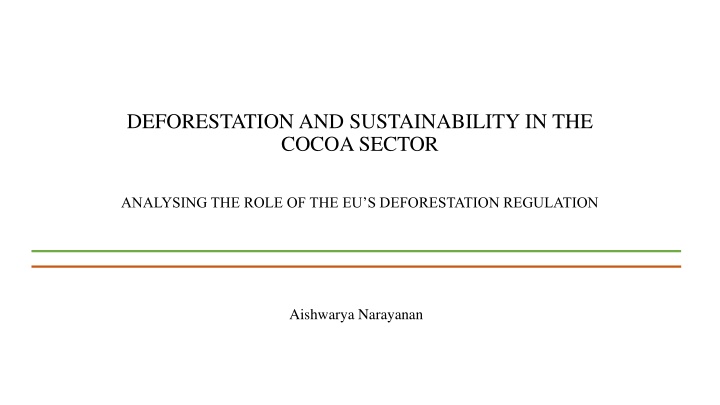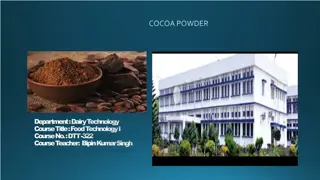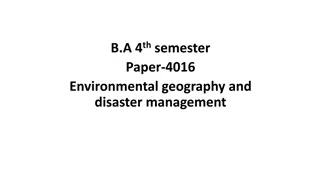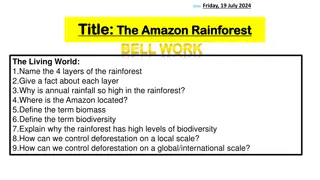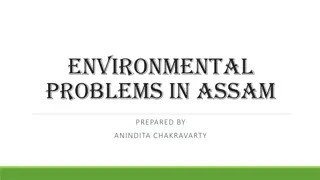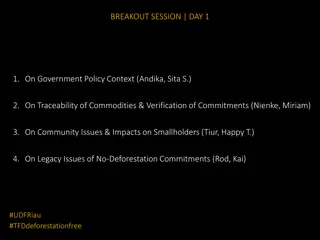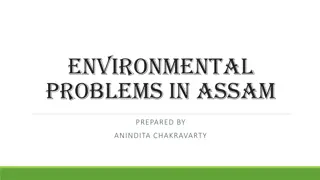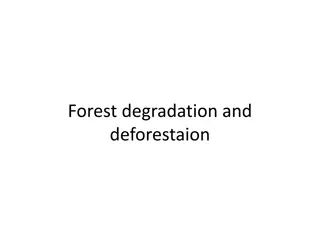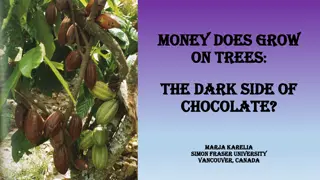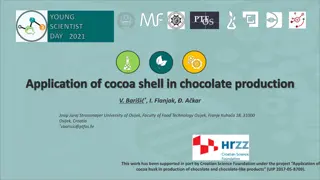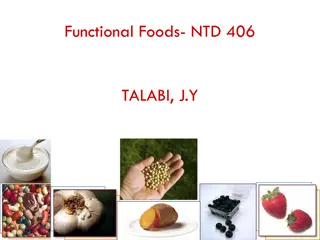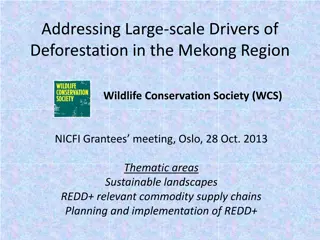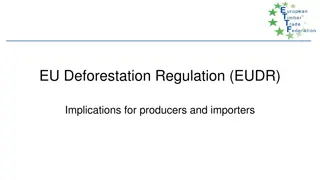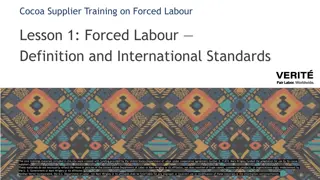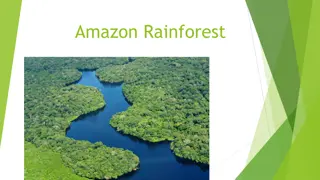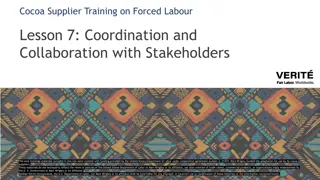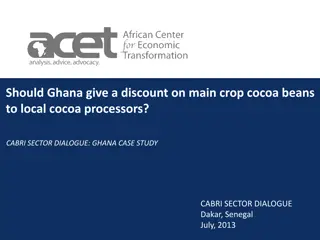Deforestation and Sustainability in the Cocoa Sector: Role of EU Regulation
Analyzing the impact of deforestation and sustainability issues in the cocoa sector, focusing on the role of the EU's Deforestation Regulation. The discussion covers key challenges such as child labor, lack of social infrastructure, and environmental concerns, along with solutions for sustainable cocoa production through cooperation, financial aid, and regulatory compliance.
Download Presentation

Please find below an Image/Link to download the presentation.
The content on the website is provided AS IS for your information and personal use only. It may not be sold, licensed, or shared on other websites without obtaining consent from the author.If you encounter any issues during the download, it is possible that the publisher has removed the file from their server.
You are allowed to download the files provided on this website for personal or commercial use, subject to the condition that they are used lawfully. All files are the property of their respective owners.
The content on the website is provided AS IS for your information and personal use only. It may not be sold, licensed, or shared on other websites without obtaining consent from the author.
E N D
Presentation Transcript
DEFORESTATION AND SUSTAINABILITY IN THE COCOA SECTOR ANALYSING THE ROLE OF THE EU S DEFORESTATION REGULATION Aishwarya Narayanan
Sustainability Issues in the Cocoa Sector Child labour Deforestation and degradation Labour rights/Working conditions Biodiversity loss Lack of social infrastructure Climate change Social Issues Environmental Concerns Mismatch in value distribution across the supply chain Farmer Poverty Lack of living income Rising costs of living Low prices Rising production costs Low yields 2
Background:Green Deal and the push towards sustainability EU s Deforestation Regulation Objective: Reduce EU consumption-driven global deforestation Product coverage Cattle, cocoa, coffee, oil palm, rubber, soya and wood, along with derivative products Both domestic and imported Entry into force: 29 June 2023 Key features Products to be deforestation-free (after 31 December 2020) Compliance with local laws in country of production (including social and environmental laws) Extensive due diligence (including exact geo-location and time range data) Country benchmarking and risk assignment Implementation timelines Large operators: 30 December 2024 Micro and small enterprises: 30 June 2025 3
Producing country co-operation Financial aid Community development and infrastructure building Availability of finance and infrastructure Awareness and monitoring Deforestation Regulation Technical assistance and capacity building Corporate accountability Child labour Deforestation and degradation Solutions for Sustainable Cocoa Labour rights/Working conditions Biodiversity loss Lack of social infrastructure Climate change Social Issues Environmental Concerns Eliminate incentive to disregard human rights Eliminate incentive to cause environmental damage Farmer Poverty Lack of living income Rising costs of living Low prices Rising production costs Low yields Implementation of LID by all producing countries Common gate price in all producing countries Easy access to finance and infrastructure Stronger farmer collectives Good agricultural practices 4
Does not address other sustainability concerns Reinforces power imbalances Could act as a trigger for more targeted action Causes trade distortion Could streamline the sustainability landscape Impact of the Deforestation Regulation Incentivises leakage Stimulates state action in producing countries May cause restructuring of supply chain Increases corporate accountability Exacerbates poverty amongst cocoa farmers Arrests EU-driven deforestation Deforestation Regulation Child labour Deforestation and degradation Labour rights/Working conditions Biodiversity loss Lack of social infrastructure Climate change Social Issues Environmental Concerns Farmer Poverty Lack of living income Rising costs of living Low prices Rising production costs Low yields 5
Discriminatory and arbitrary treatment Limited product coverage Country benchmarking and risk assignment Discussion on likeproducts Violation of MFN principle? Trade Concerns Environmental exception Process and production methods under WTO jurisprudence Discontent and objection at the WTO Indonesia-EU palm oil dispute (DS593) 6
Thank you! aishwarya.narayanan@graduateinstitute.ch
